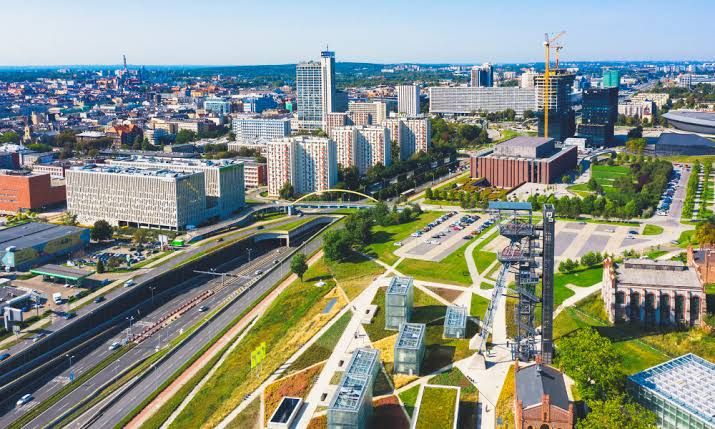
Eastern European nation Poland boasts a rich history and culture and is a quite intriguing place. From the great Tatra mountains in the south to the amazing northern seaside towns, Poland offers many lovely locations for travel.
Poland’s connection between the east and the west sets it in an unusual place in Central Europe. Both sides have had special influence on Polish culture. Some areas obviously reflect the Soviet era, others remind you of the German past, and still others have an Italian touch.
Choosing the most attractive city in Poland presents a difficulty for many who are either organizing a trip or just talking about the great cultural legacy of the nation. Every city has a different mix of architecture, history, and natural environs that fuels a vibrant discussion among both residents and visitors.
List Of Top 10 Most Beautiful Cities In Poland 2024
1. Warsaw
Among the finest European cities, the city is Poland’s expansive capital. From Gothic churches and neoclassical mansions to Soviet-era blocks and contemporary skyscrapers, its very diversified architecture reflects the long, stormy history of the city. After severe devastation during World War Two, the Old Town of the city was rebuilt. Its center is Market Square, featuring open-air eateries and pastel-colored structures. The symbol of the city is the monument to the Warsaw Mermaid right in the middle. Remnants of Warsaw’s medieval fortifications, the Barbican and defensive-wall fragments From the great, reconstructed Royal Castle, where events are staged, past churches and neoclassical palaces to opulent 17th-century Wilanów Palace, housing royal relics, the Royal Route winds. The renowned Polish composer, a native of Warsaw, is honored at the Fryderyk Chopin Museum Tracking the terrible wartime experience of the city, the high-tech POLIN Museum of the History of Polish Jews and the Warsaw Uprising Museum Warsaw, the cultural center of Poland, boasts a vibrant nightlife and underground as well as classical music scene.
2. Kraków
Known for its well-preserved medieval core and Jewish quarter, Krakow, a southern Poland city close to the Czech Republic, Centered on the magnificent, vast Rynek Glówny (market square), the old town is bordered by Planty Park and traces of the medieval fortifications of the city. A Renaissance-era trading center called Cloth Hall and a 14th-century Gothic cathedral called St. Mary’s Basilica occupies this plaza. Krakow’s gorgeous sights make it the second-best city trip in Poland. Rising on a hill above the Vistula River are Wawel Castle and Cathedral, a vast Gothic royal palace-turned-museum exhibiting European paintings and sculpture. At Oskar Schindler’s Factory and the former Jewish enclave, Kazimierz, which is now filled with chic cafés and clubs, the city’s Jewish past is on exhibit. Day visits to neighboring Auschwitz-Birkenau, a Nazi concentration camp monument and museum, or 327m-deep Wielowicz Salt Mine—with a great labyrinth of tunnels, chapels, and publically accessible chambers—are common among visitors.
3. Gdańsk
Port city Gdansk, Danzig in German, is on Poland’s Baltic coast. Reconstructed following World War II, Long Market—now home to stores and restaurants—has vibrant facades right in the middle of Main Town. Nearest is Neptune Fountain, a 17th-century emblem of the city crowned with a bronze sea god. A center for the amber trade worldwide, one of the most attractive cities in Europe also features boutiques spreading the ossified resin around the city. The European Solidarity Centre recounts the narrative of the union of shipyard workers that toppled Poland’s Communist government on Solidarity Square. Comprising 20,000 members, Gothic St. Mary’s Church is a large red brick construction. The National Maritime Museum, with a rebuilt medieval shipyard crane, sits beside the Motawa Canal. Popular summer vacation spot Sopot is a town next-door with a big pier and expansive beach.
4. Wrocław
On the western Poland of the Oder River, Wroclaw is a city. Poland’s lovely city is well-known for its Market Square, which runs along tasteful townhouses with a contemporary fountain. Comprising a big astronomical clock, the Gothic Old Town Hall is also on the square. Not far away lies the Panorama of Raclawice, a painting capturing the 1794 struggle for freedom. Across the river is the huge dome and tall spire of the Centennial Hall auditorium. The White Stork Synagogue in the city center houses a museum honoring the Jewish past of the city. Towering twin spires and several chapels—including the 18th-century Electoral Chapel—the Cathedral of St. John the Baptist boasts Close by is the botanical garden with arboretum, alpine garden, and greenhouses. Bright water shows set to music and lighting abound in the Wroclaw Fountain. Szczytnicki Park, with its wooden St. John of Nepomuk chapel and well maintained Japanese garden, is not far away.
5. Poznań
On the Warta River in western Poland, Poznan is a lovely European city. Universities as well as the old town—with Renaissance-style structures at Old Market Square—are well-known. The Historical Museum of Poznan, featuring displays on the city, is housed in Pozna Town Hall At lunchtime the mechanical goats in the town hall butt heads. Built on an island known as Ostrów Tumski, the Gothic and baroque Saints Peter and Paul Cathedral The crypts of Polish kings Mieszko I and Boleslaw the Brave call the Golden Chapel of the cathedral home. The neo-Romanesque Imperial Castle, well beyond the town core, boasts a courtyard with a lion fountain and a throne room. The adjacent Monument to the Victims of June 1956 (Pomnik Ofiar Czerwca 1956) honors a Communist workers’rebellion. The art deco Palm House boasts an aquarium, tropical plants, and a greenhouse. Slopes of Citadel Park represent the last stand of the Nazi fortress in 1945 and today serve as sites of soldier memorials and two army museums. An indoor ice-skating rink and floating Malta Fountain are features of Lake Malta.
6. Łódź
Renowned as a former textile-manufacturing center, Lodz a Beautiful City of Europe situated in central Poland Linked to the trade, its Central Museum of Textiles exhibits 19th-century technology, fabrics, and handicarticles. Originally a factory, the rebuilt Manufaktura complex is today a vibrant arts and cultural hub. Not far away is the magnificent Poznanski Palace, which houses the City Museum with artifacts and artwork illustrating the past. Shops, cafés, and memorials to the most well-known residents of the city line the lengthy, pedestrianized Piotrkowska Street These include the bronze Tuwim Bench honoring poet Julian Tuwim and a monument of theater director Leon Schiller. Stored in a palace from the 19th century, the Museum of Cinematography features multimedia exhibits and movie gear with an eye on Polish film history. The Botanical Garden, with its ornamental and therapeutic plants, plus a Japanese garden and a palm house, lies west of the city.
7. Katowice
East of Krakow, in the southern Poland’s Silesian area, Katowice is a city Built between 1927 and 1955, the Cathedral of Christ the King is crowned with a big dome. Silesian holy art is displayed next in the Archdiocesan Museum. On the site of a former coal mine, the ultramodern Silesian Museum boasts a number of glass constructions It traces the history of Upper Silesia and shows Polish art. The former hoist shaft tower of the mine provides panoramic views of an elegant European metropolis. Spodek, a unique 1971 sports and performance arena close by, looks like a flying saucer. Comprising three large bronze wings, the Silesian Insurgent Monument honors three uprisings against the German government following World War One. Along with displays highlighting the past of the city, the Museum of Katowice History features authentic furniture from its 1908 building. One area of the museum in adjacent Nikiszowiec re-creates the daily life of district residents. Vast Silesia Park features an ethnographic park with century-old architecture, a zoo, and a planetarium.
8. Szczecin
On the Oder River in northwest Poland sits Szczecin. Renowned for its 19th-century Way Chrobrego, or Chobry Embankment, and the rebuilt Pomeranian Dukes’ Castle, now a cultural center, The great St. James Cathedral boasts a tower with city views, triptych from the 14th century, and stained-glass windows. The Gothic Old Town Hall, which hosts displays on Szczecin’s history and culture by The National Museum, is nearby. The Museum of Regional Traditions features Pomeranian artwork as well at the National Museum. The adjacent Museum of Contemporary Art showcases modern Polish art. Underneath the train station are concrete tunnels of Underground Szczecin, a former bomb shelter constructed in the 1940s with war-related excursions. Designed to mimic ice crystals, the large, modern glass construction known as the Philharmonic Hall The lush Central Cemetery, west of the city center, features an arresting central chapel and memorials to WWII dead.
9. Lublin
With 339,682 residents, it is Lublin Voivodeship’s capital and focal point. About 170 miles to the southeast of Warsaw by road, Lublin is the biggest Polish city east of the Vistula River. The Polish-Lithuanian Union of Krewo in 1385 was one of the events most likely helping the city grow. Lublin’s strategic position on the path between Vilnius and Kraków helped it to flourish as a hub of trade and industry; the residents enjoyed unfettered trade inside the Grand Duchy of Lithuania. The Lublin Parliament session of 1569 produced the actual union between the Grand Duchy of Lithuania and the Crown of the Kingdom of Poland, therefore forming the Polish-Lithuanian Commonwealth. In the 16th century Lublin saw the early Reformation stages. An prominent worldwide center of Arianism, a Calvinist church was established and groups of extremist Arians started to gather in the city. Lublin was known at the start of the century for presenting some exceptional historians, authors, and poets of the age.
10. Bydgoszcz
On the Brda and Vistula rivers, Bydgoszcz is a city in northern Poland. Bydgoszcz ranks seventh in Poland with a 350,178 city population and an urban agglomeration of more than 470,000 people. Since 1999, it has been the co-capital and seat of Bydgoszcz County, alongside Toru?, of the Kuyavian-Pomeranian Voivodeship. It was the capital of the Bydgoszcz Voivodeship prior to this, and of the Pomeranian Voivodeship between 1945 and 1947. Between 1947 and 1998 Nestled amid the ancient territory of Kuyavia,




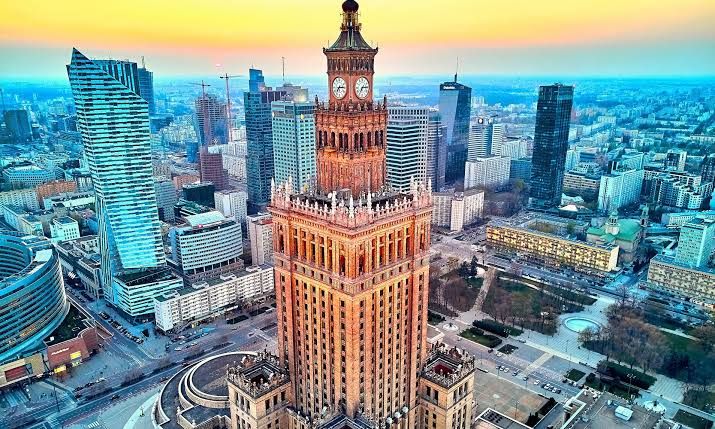
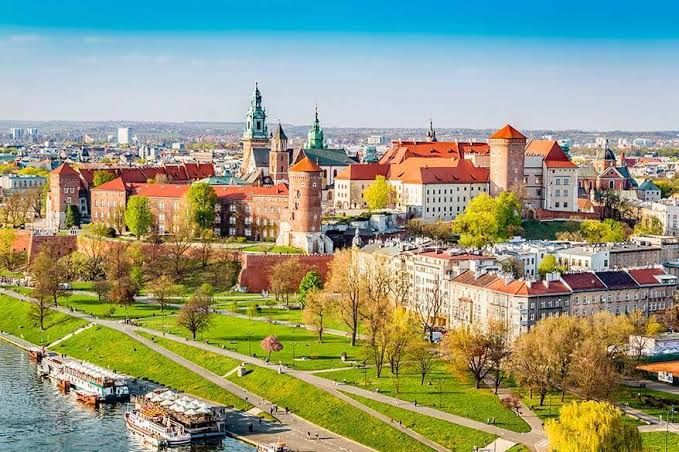
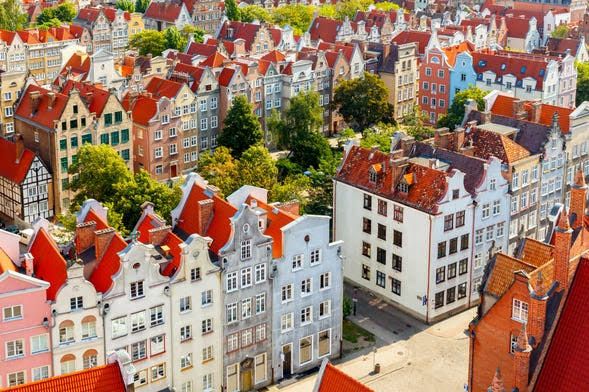
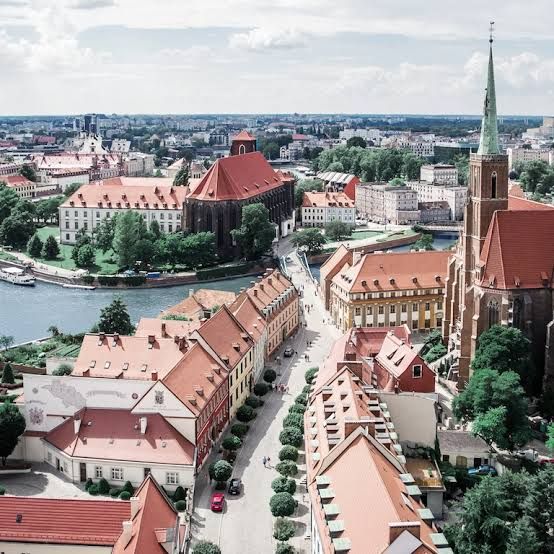
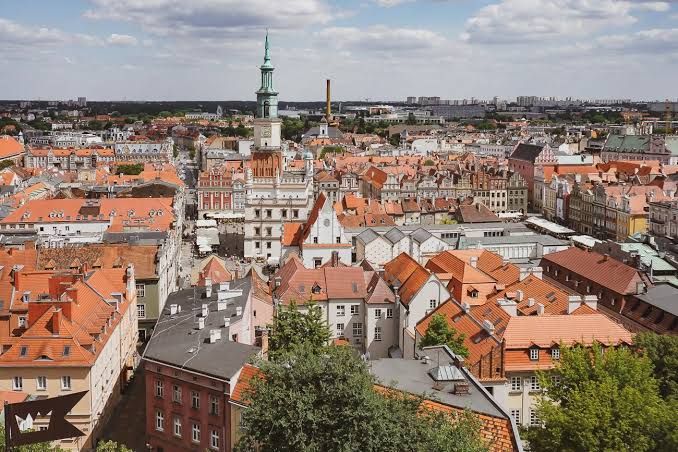
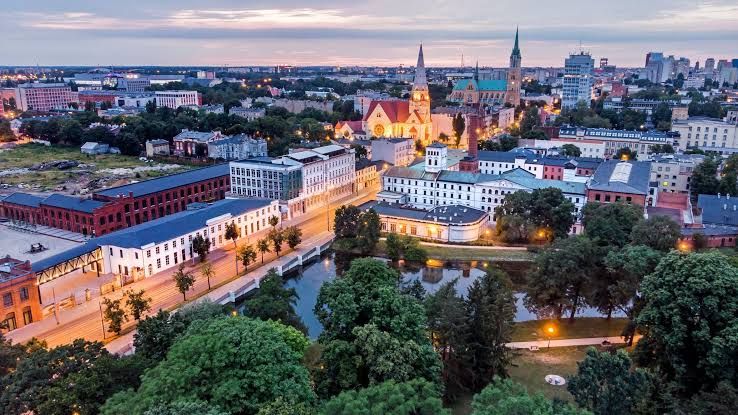
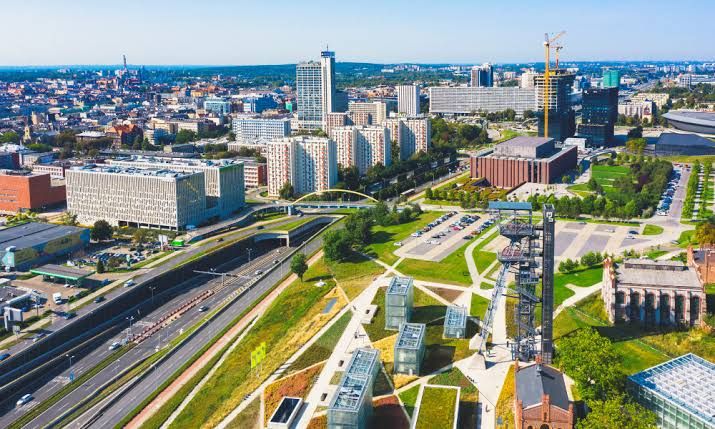
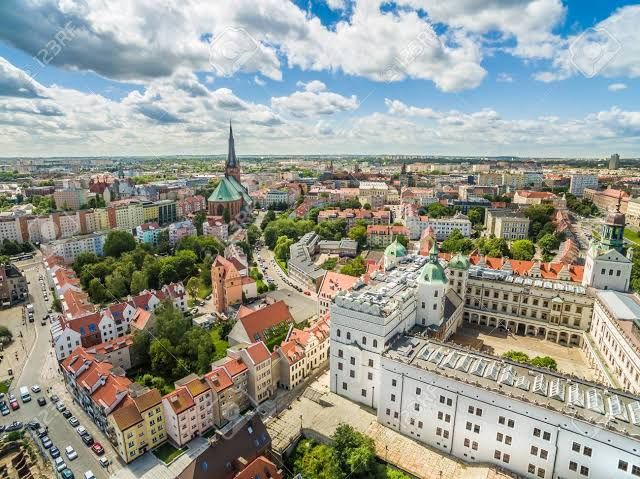
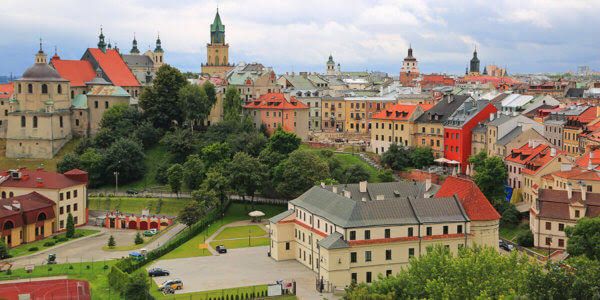
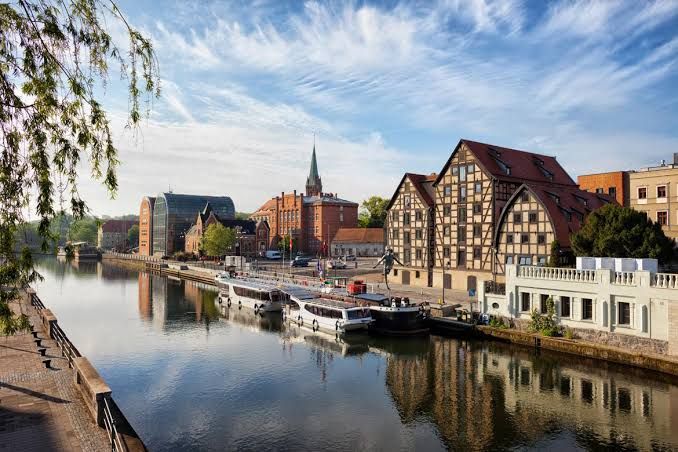


Wonderful work! This is the type of info that should be shared around the net. Shame on the search engines for not positioning this post higher! Come on over and visit my site . Thanks =)